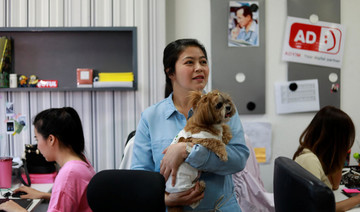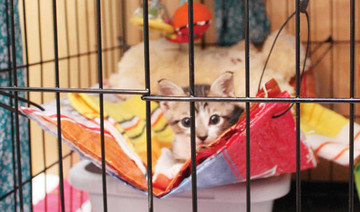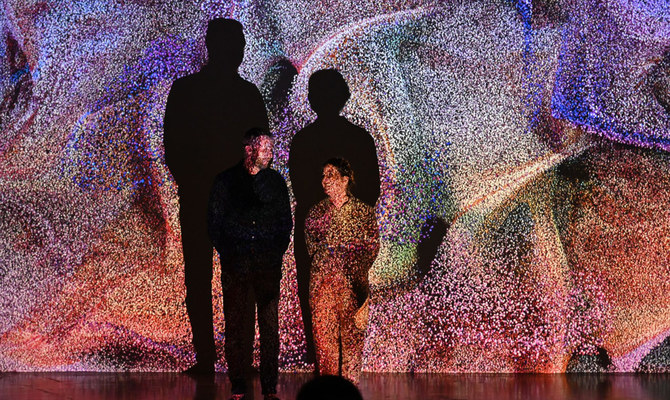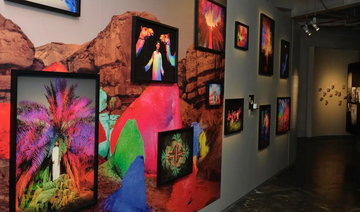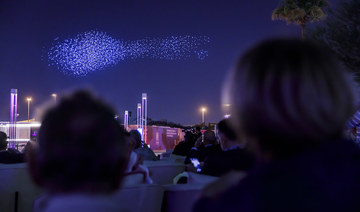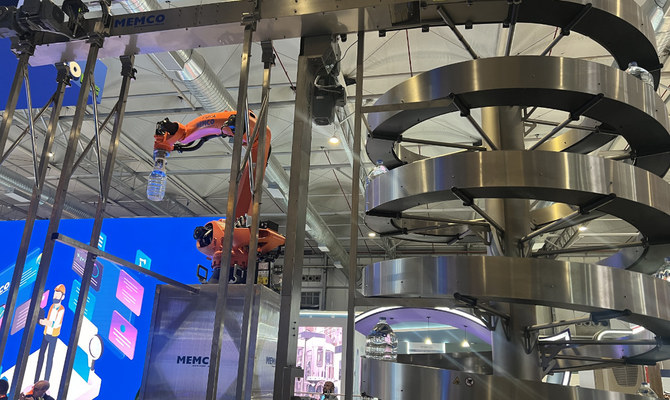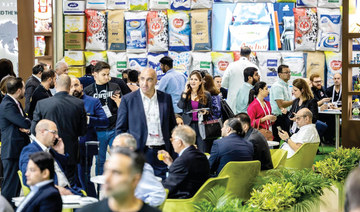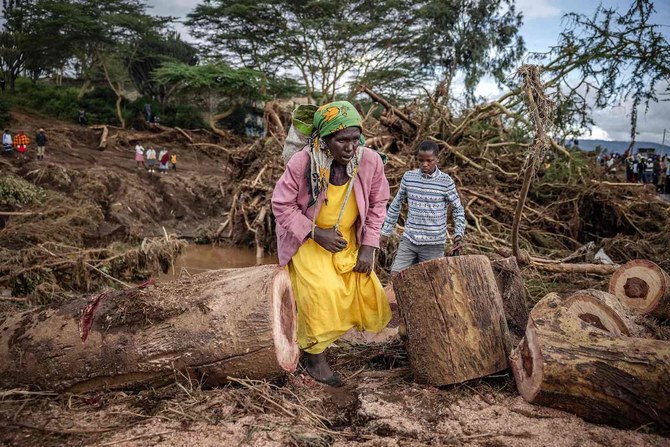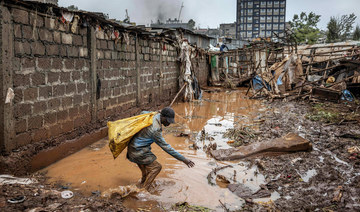DUBAI: Animal welfare workers across Saudi Arabia are being inundated with daily requests to take on unwanted dogs and cats as they say pet abandonment across the Kingdom is at record highs.
Nour Fetyani, a Saudi, is the adoption coordinator for Open Paws Jeddah, a team of volunteers who rescue and re-home Jeddah’s abandoned dogs. She works around-the-clock to find forever homes for abandoned dogs.
“It (animal abandonment) is increasing; it is phone calls to us, it is contacting us via WhatsApp, Instagram and Facebook,” she said. “I would say it is every other day, if not daily.”
Animal owners, she said, often have the same reasons for giving up pets: Neighbors who have complained about dogs barking, new-found allergies or a change in family circumstances.
Others, she said, simply do not want to spend the time taking care of the animals they bought. Fetyani said that a lack of foresight is often a big contributing factor.
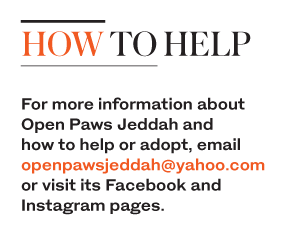 “The reasons we get — we can not speak for the whole of Saudi Arabia, but we do speak to other rescue organizations and it seems to be the same story — when it comes to dogs, people do not realize they are a responsibility.
“The reasons we get — we can not speak for the whole of Saudi Arabia, but we do speak to other rescue organizations and it seems to be the same story — when it comes to dogs, people do not realize they are a responsibility.
“They are not like cats: You have to train them. Others will say they need to leave Saudi and do not have time to figure out transportation for their pet when, if the vaccinations are up-to-date, it is actually a very simple process. Others say they are getting married, or divorced, or having a baby, and they can no longer look after their dog.
“We really try and work out when people surrender a pet, such as having to leave the country, if there is a solution that we can find to make sure they don’t have to be separated from their animal.”
In other cases, people simply do not want their pet any more and dump the unwanted animal. “Even though we have dealt with this situation so many times, it still is hard,” said Fetyani. “It never fails to surprise you how people can be. It is really tough.”
Other cases in which people have reached out for the help of Open Paws Jeddah are more cruel. “We have had a deaf and blind dog thrown in a box. In the south of Jeddah, there was a time when a spate of dogs were shot with pellets. Another time there was a lot of dogs being poisoned.”
Animal welfare organizations across Jeddah and the wider Kingdom, run by animal-loving volunteers, struggle with the same issue: They need funding for food and boarding but legal red tape prevents them from raising funds to care for abandoned animals, many of which are often found with injuries after being struck by a passing car.
In addition, animal welfare workers struggle with finding shelter for unwanted pets until they can find them a permanent home. There are few shelters across Saudi Arabia. Open Paws Jeddah, said Fetyani, is fortunate to have been loaned a large strip of empty land by a Saudi family, which the organization uses to board dogs for which it cannot immediately find a foster or permanent home.
The land can only house five kennels, so often welfare workers are faced with the difficult choice of prioritizing which dogs they rescue. “A Maltese dog (a small breed) hit by a car is a different
case to a ‘desert dog’ used to surviving on the streets,” said Fetyani. “Some dogs take priority. So, in that case, it is better to leave food and drink for the desert dog and take the Maltese.”
Farah Genzales-Uddin, founder of the animal welfare group Kitty Tender Love and Care, has been rescuing cats for seven years in Saudi Arabia and said at present her voluntary shelter in Jeddah is “overwhelmed.”
“The (number of) abandoned pets in the Kingdom has always been very high, but now more than ever, since we have Saudization and thousands of expats have — and continue to — exit due to loss of jobs,” she said. “Thousands of home pets are in need of being rescued and my voluntary shelter is overwhelmed due to this situation.”
Genzales-Uddin receives an average of 10 messages or phone calls every day asking her to take multiple unwanted cats. The highest she was asked to take in a single instance was 57 cats.
Due to limited resources and help, she said that there is a desperate need for a national TNR (Trap, Neuter, Return) scheme to stop the overpopulation of unwanted pets.
Like Fetyani, Genzales-Uddin said that she often gets the same pleas to take on pets: Expatriates leaving the Kingdom who say they have too little notice to prepare the necessary paperwork to take their animals with them; and those who say they no longer want their cat due to pregnancies or allergies. “Sometimes cats were plainly bought for entertainment as kittens and have grown a bit and are no longer cute and their owners can’t manage with pets wanting to mate.”
Genzales-Uddin said that more government-recognized organizations and welfare groups are needed to tackle an “overwhelming situation.”
Aahd Kadiri, a Moroccan, and Zafer Mallouk, from Lebanon, are a husband-and-wife animal rescue team in Saudi Arabia. The couple rescue dozens of dogs each year; the majority of which are re-homed abroad.
“We use our home as a ‘shelter’ but we are limited to a certain number at any given time,” said Mallouk. “We have some people who help with fostering/sponsoring some of the dogs. But most of the rescues are sponsored by us, which is also not helping as we have limited funds to rescue more.
“Lots of dogs in the Kingdom are purchased as puppies then people realize they are not ‘teddy bears.’ They either just put them on the street or sell them back to another person who eventually abandons them. There is a very large stray-dog population.”
Fetyani, who has been with Open Paws Jeddah for four years, said that it is hard to estimate the scale of animal abandonment given the number of volunteer-run rescue organizations and individual volunteers all helping to rescue, foster and care for unwanted pets.
However, the sheer number of people willing to volunteer their spare time to animal welfare causes gives Fetyani hope.
She points to a fellow animal welfare worker who has transformed the large patch of land near her one into a sanctuary for injured street cats until they are healed and ready to be released back onto the streets or into a person’s home.
However, Fetyani said people’s goodwill can be taken advantage of. One foster carer for Open Paws Jeddah, known for looking after unwanted dogs, would wake up to find people had tied their dogs to his front door.
Fetyani said that more awareness and education are needed to help tackle the issue. “In some ways, it has improved; more people have pets, there is more awareness about adoption, and more people are understanding they should adopt instead of buying a pet.”
Given the scale of her work, Fetyani still loves what she does. “I really feel passionate about it; you get instant gratification. When you look at before-and-after pictures of dogs that were in a terriblestate and now are living the dream, it is incredible.”









